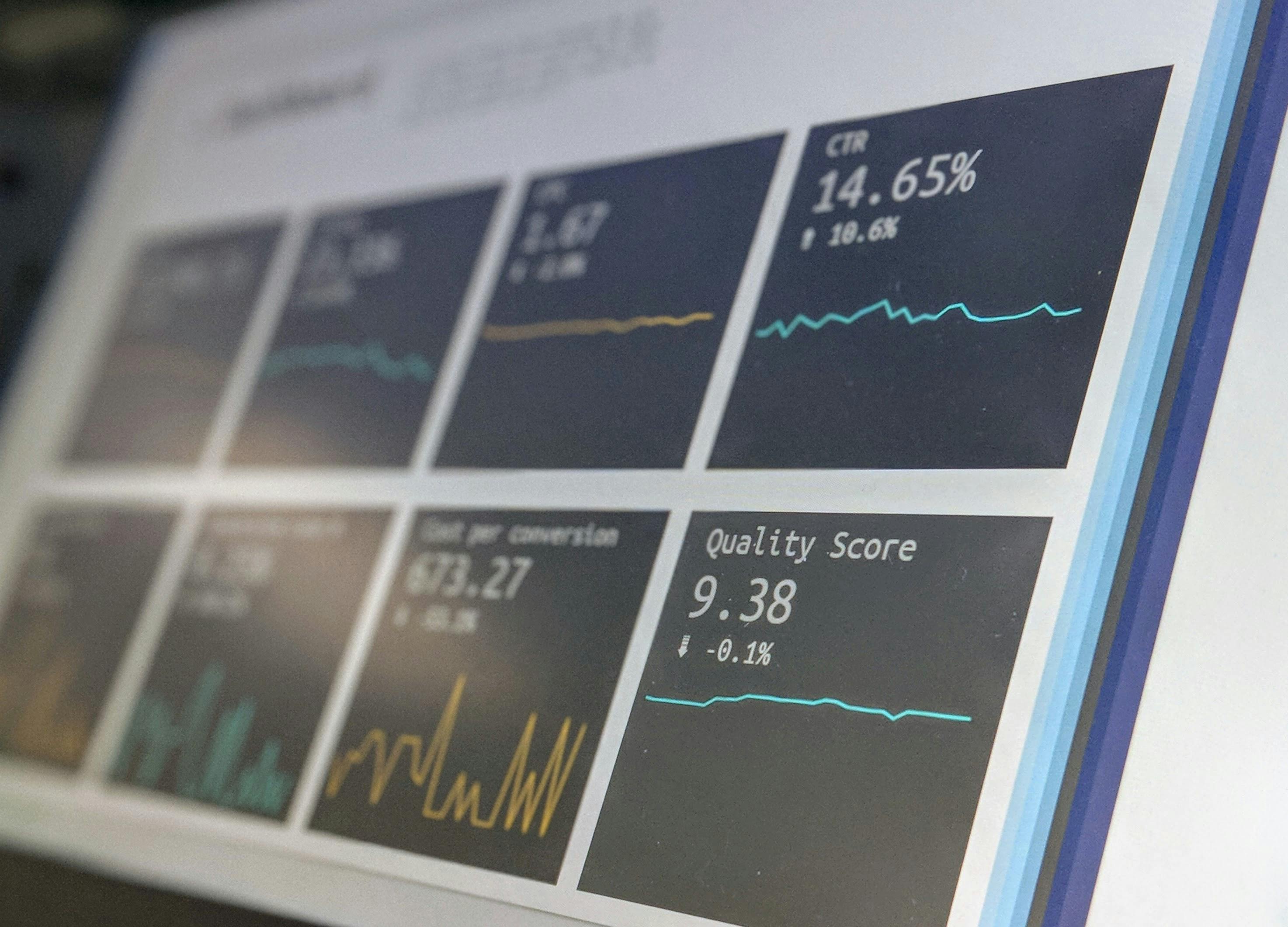Exploring Career Opportunities in the Data Industry
Top High-Demand Jobs, Salaries, and Growth Projections
Table of contents
- Introduction: The Data Industry as a Growing Field
- How Data Professionals Contribute to Business Success
- Hot Career Opportunities in the Data Industry.
- Essential Skills for a Career in the Data Industry
- Advancing Your Career in the Data Industry
- Conclusion: Why Pursuing a Career in the Data Industry is a Smart Choice
Introduction: The Data Industry as a Growing Field
The universe is rapidly moving along with the trend of artificial intelligence systems. 2022 saw the birth of some exciting and fascinating applications of machine learning (ML). Artificial Intelligence Systems like ChatGPT, DAWN Ai, and DALL-E, have shown that the use of data has exponentially grown modern businesses.
The use of data and machine learning in new businesses has led to the rise in demand for more professionals in this industry, therefore, creating more opportunities for everyone. For the main core of a data-driven business to work efficiently, skilled data professionals are required to perform their specific tasks.
This article is targeted towards newbies just transitioning into the data industry, data professionals looking to be exposed to the opportunities available, businesses aiming to leverage the use of data and every other reader interested in knowing more about the data industry. The article answers your questions about:
How companies use Data and how data professionals can help the growth of businesses?
The opportunities available in the industry and their roles in businesses
Requirements to accelerate growth in the industry.
In the next section, how businesses use data and how data professionals can be of help, in this case, would be looked into.
How Data Professionals Contribute to Business Success
A business collates data through various means such as surveys, website analytics, and secondary data sources and how compelling the data is, is determined by the data professionals. Data is without significance when it is not processed since it is a raw form of knowledge. When processed, it provides information and foresight into how to improve business activities.

For a business to get the best out of the data collated, the services of data professionals are employed. The different skill sets to clean, manipulate, visualize and model data, and transmit quality information on how to improve a business's day-to-day running. Over time, data professionals have helped data-relevant businesses to grow through various means. Some of the recorded successes include:
Improving customer experience by using data to better understand customer needs.
Predict future trends and patterns in a business.
Identifying and detecting fraudulent activities.
Automating new workflows and refining them as time goes on.
Leveraging data to drive innovations.
Every role in the data industry is significant and relevant to business success, the next section will explain some of the career opportunities in the data industry and how they can help the global market scale profitably.
Hot Career Opportunities in the Data Industry.
The data teams in any business or organization consist of different types of data professionals. The responsibilities of extracting and analyzing data, and also presenting insights drawn from the data falls on their shoulders. This section explains the job description, roles and expectations when working as a data professional.
Data professionals have varying roles to perform in a business depending on their targets. It is therefore important to understand the roles and responsibilities of different data professionals.

Data Analyst
The job of a data analyst is mainly to carry out research and analysis based on collated data. They are tasked to come up with meaningful and reliable insights that would help the shareholders and members of the other groups make data-driven decisions in the business.
Due to their strong ability to think critically and pay close attention to details, they can carry out their respective tasks. The roles of a data analyst are not just limited to analyzing data but they also carry out other tasks. These include :
Collaboration with other data professionals to collect and analyze data.
Based on drawn insights, they help businesses make the right decisions.
Identifying patterns and meaningful connections to derive useful information.
Communicating findings to internal teams through reports and presentations.
The skills of a data analyst, among which are their ability to contribute to problem-solving, strong critical thinking and ability to communicate effectively, provide them with diverse opportunities in different sectors like Healthcare, Banking, Manufacturing, etc. According to Glassdoor, a data analyst with about four years of experience makes an average of NGN 240,000 per month in Nigeria.
Business Intelligence Analyst.
Just like a data analyst, a business intelligence analyst (BI analyst), analyzes data but unlike a data analyst, they specialize in gathering and studying business intelligence data. Business Intelligence data includes data about the business marketplace, competitor’s data, customer reviews, etc. A business analyst works towards transforming data into insights to assist the business in making decisions that expand and grow the business.
The skills of a good business intelligence analyst would help boost the growth of a business exponentially. A business can further utilize these skills by further understanding their roles in the business. Other roles of a business analyst are to:
Analyze data to determine the need of the business.
Help business owners understand the business objectives.
Analyze competitors' information and business marketplace.
Communicate impacts of analytical findings and decisions in the business.
Work closely with business stakeholders to give guidance when making important business decisions

These roles would help the business better understand its objectives and attain the business targets. More importantly, for a business analyst to succeed in the industry, understanding fundamental business models and being comfortable leading and making decisions, are important skills to acquire. These skills make them a good fit in the retail, finance, and insurance industries. With an experience of four years and above, a business intelligence analyst makes close to NGN 150,000 per month.
Data Engineer
Taking data from its raw to a processable form is an important task in the data industry. And this task is done majorly with the skills of a data engineer. A data engineer carries out the role of collecting, managing and converting raw data to processable form with the use of data processing software.
Since data is unique to the business or organization, the data engineer builds data pipelines to help make every process faster. They also save other members of the data team the struggle of working with the wrong set of data. The data engineer teams perform the following task:
Working closely with members of the data team.
Collecting large and complex sets of data that meet the organization's requirements.
Building and maintaining optimal data pipeline architecture.
Building required tools for extracting, transforming and loading data from its source.
Performing root error analysis on internal and external data.
Excelling as a data engineer would require one to hone the ability to handle SQL database systems and have strong analytic skills amongst others. With these skills, data engineers can work effectively in manufacturing, communication, security industries, etc. The average salary of a data engineer is approximately NGN 250,000 per month depending on the location.

Data Scientist
Data scientist makes use of their knowledge of statistics and machine-learning techniques to develop data-driven solutions to difficult situations. The skills of a data scientist encompass that of most of the members of the data team. Hence, the possibility for the lead of any data team to be a data scientist is very high since they have knowledge of every stage of the project.
Although these skills may take a while to develop, the importance of a data scientist in the business or organization cannot be overlooked. The roles of this professional are not limited, some other roles of the data scientist are listed below:
Getting involved in the processes of decision-making.
Creating predictive models to increase and improve customer experience.
Developing custom data models and algorithms.
Monitoring and analyzing model performance.
Researching and developing new algorithms and approaches.
Due to their importance in a business or organization, the demand for data scientists in the modern age has been on the rise. It is therefore important for a data scientist to acquire top-level skills like exceptional communication skills, excellent team collaboration spirit, and familiarity with machine learning and statistics. According to Indeed, depending on the level of experience, a data scientist makes an average of NGN 226,000 per month.
Machine Learning Engineer
Just like data scientists, machine learning engineers have a very high demand in the present age. The roles of a machine learning engineer are designing and building artificial intelligence systems that are capable of making predictions based on patterns and trends from processed data. For a business to make use of predictive models that enhance customer experience at the production phase, a machine learning engineer plays a key role in the production and development of these systems.

With the intersection of software engineering and data science, machine learning engineers have an effective contribution to the growth of the business. They help reinforce the strategy of the business with some of the following roles:
Collaborating with other members of the data team to take the project from start to production level.
Identifying and training models with trends and patterns from the data.
Developing, designing and building machine-learning algorithms.
Deploying and testing production-ready models to make sure they work smoothly.
Maintaining and evaluating model performance to improve user experience.
A skilled machine-learning engineer possesses high-level skills honed after several years of experience in the field. Some of these skills include effective oral and written communication skills, in-depth knowledge of machine learning techniques, sound programming skills, etc. With these skills, an ML engineer is opportune to work in different industries like healthcare, manufacturing, insurance, etc. An average machine-learning engineer makes about NGN 225,000 per month.
Read More: Roles and Responsibilities of a Machine Learning Engineer.
To effectively function in this industry, it is important to develop and hone skills that would increase one’s chances of getting employment opportunities in the data industry.
In the next section, some of the essential skill sets required to excel in the field would be reviewed.
Essential Skills for a Career in the Data Industry
In the data industry, data professionals tend to exhibit certain skills that help them carry out their roles effectively. This section works towards introducing the reader to the said skills. With these skills, the reader gets a hint on what to concentrate on while working towards their goals.

Honing these skills requires consistency and willingness to learn. Below are some of the skills required of a data professional:
Programming skills: As a data professional, it is important to possess at least one of the popularly used data-related programming language skills like Python, R, JAVA, etc. With this skill, the data professional can easily work with a dataset to achieve their set goal.
Data-Related Skills: Having a good eye for data and also strong analytic skills is a necessity for a data professional, as most of their roles involve working directly with data. Developing one's ability to handle database systems like PostgreSQL, MongoDB, SQLite, etc and writing queries with SQL would help when with data.
Good Communication Skills: It is important to hone effective oral and written communication skills. Since data professionals have to present the insight gotten to other members of the business, they must have the ability to present these insights in a lame man’s language.
Critical-Thinking and Problem-Solving Skills: A data professional must be able to come up with new approaches to solve challenges. They must also exhibit the ability to carry out these approaches and solve business problems.
Team Spirit: Working as a data professional requires the ability to collaborate with other members of the data teams. This helps the team reach solutions to problems swiftly.
These are some of the skills necessary for a data professional to succeed in the data industry. Moving forward, the data industry can also be affected by some other factors.
The coming section explains some of how a data professional can grow exceptionally.

Advancing Your Career in the Data Industry
The Data Industry provides numerous opportunities for personal and business growth. This section highlights some of the factors that have positively affected different data professionals. These tips have served as catalysts in the careers of data professionals. Partaking and getting involved in some of this can help with your growth in the industry:
Joining and getting involved in Data communities: Data professionals have cited how local and international communities such as Data Science Network(DSN), Black In AI, and Data Science Africa have been of help in the growth of their careers. Joining a local community can be of great help.
Up-to-date and inquisitive habits: Making it a practice to follow the latest developments in artificial intelligence trends might heighten your enthusiasm for discovering new technologies.
Networking with other professionals in the field: Creating a network with other professionals can help expose you to new areas of the data industry and also discover what aligns best with your interest. This can be done by attending meetups, and conferences and participating in hackathons.
Building a diverse set of skills: Devoting time to building one’s skills as a data professional, allows for continuous growth. This growth leads to the development of all-around skills in the industry.
Taking up challenges and projects to push one’s abilities to the next level: By trying out different projects, data professionals can find the best career path for them. this in turn brings growth to the individual.
By consistently following these tips, individuals who hope to learn and grow can position themselves for success in the data industry and take up different opportunities that keep popping up within the exciting field.
Conclusion: Why Pursuing a Career in the Data Industry is a Smart Choice
In conclusion, pursuing a career in the data industry is a wise decision as it offers numerous opportunities for personal and business growth through the use of data. With the advancement of technology, the demand for skilled professionals in the industry is on the rise, especially those with expertise in artificial intelligence.
While each role in the industry requires a unique set of skills, they all share a focus on data analysis and interpretation. It is important to note that growth in this field takes time, but consistency and curiosity are key to success.

